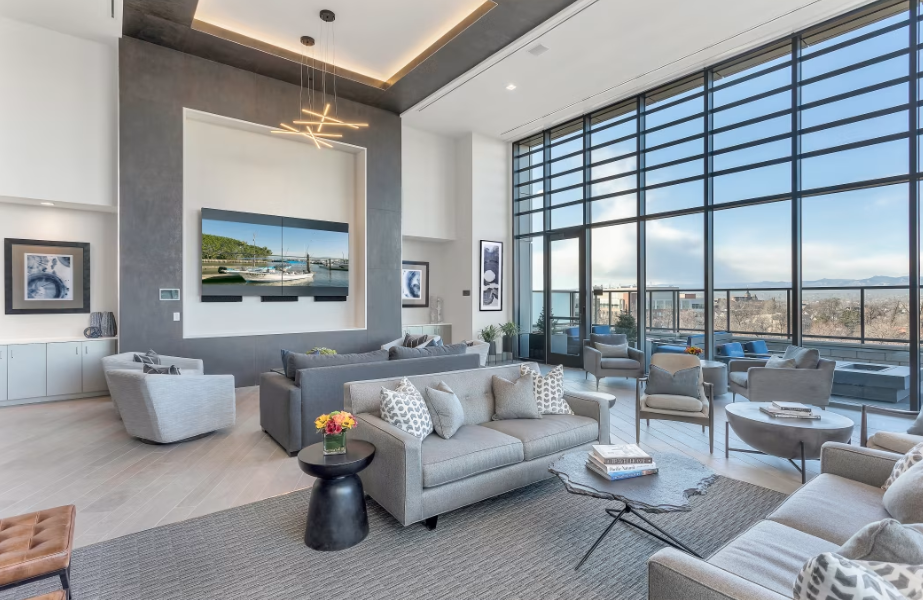Australia Apartment Rental Survival Guide: How to Snag a High-Quality, Affordable Home Fast!
Moving to Australia? Whether you are a new immigrant, an international student, or a busy professional, the race to find a decent, affordable apartment is real. The Aussie rental market can be competitive and tough, especially in major cities like Sydney and Melbourne. But don't panic! You absolutely can find a great place without breaking your personal budget. This is your essential, step-by-step guide to landing your perfect apartment and setting up your new life. We focus on getting you the best value for your hard-earned money.

The Current Australian Rental Reality: What You Need to Know Now
Forget the easy-going vibes you might expect. The apartment rental scene is fast-paced, and demand often outstrips supply, which means higher prices and fierce competition for the best spots.
H2. Key Market Insights for New Renters
Prices are High, but Growth is Slowing:Rents have soared recently, but the good news is thepaceof growth has started to ease in late 2024 and early 2025. This means less sudden, huge price jumps.
Units vs. Houses:Unit (apartment) rents are often rising faster than house rents in some areas. Why? People are downsizing to save cash, making smaller, cheaper apartments highly contested.
The Power of Suburbs:Capital cities like Sydney and Melbourne are the most expensive. Look at outer suburbs (e.g., Parramatta in Sydney) or smaller cities like Adelaide and Brisbane for much better value.
The Busiest Time:January and February are peak season due to the student rush. If you can, start your serious search in the quieter months of May to August—less competition equals better chances for a deal!
H2. Your Essential "To-C" Rental Toolkit: Documents and Money
Landlords and property managers want proof thatyouare a reliable, low-risk tenant who will pay the rent on time and look after the place. Think of your application as your personal résumé for a home.
H3. What to PrepareBeforeYou Look
Proof of Identity:Passport, driver's licence, or student ID.
Proof of Income/Funds:Bank statements (last three months), payslips, or a letter from your employer/university.Crucial:This shows your ability to personally afford the weekly rent.
References:Personal contacts (not family!) and previous landlord/agent references. New to Australia? Use letters of recommendation from former employers or trusted community members.
Rental Résumé:A simple, one-page document summarising your contact info, employment/study status, and why you’d be a fantastic tenant.
H3. Budgeting for Your Personal Move
Renting involves more than just the weekly rate. Make sure your personal budget accounts for these up-front costs:
Bond (Security Deposit):Usually equal to four weeks’ rent. This is held securely and refunded when you move out, assuming no damage.
Rent in Advance:Typically, you pay the first two or four weeks' rent when signing the lease.
Utilities:Budget for electricity, gas, and internet hookup fees and ongoing monthly bills.Tip:Ask if the rent includes water usage—sometimes it does!
Personal Contents Insurance:Protectyourpersonal belongings inside the apartment.
H2. Smart Strategies to Find Cheap, High-Quality Apartments
Finding a gem requires a smart search strategy and a little negotiation know-how.
H3. Where to Start Your Personal Apartment Hunt
Online Listings:https://www.google.com/search?q=Realestate.com.au and Domain are the biggest platforms. Set up email alerts for your preferred price range and suburb.
Share Accommodation Sites:Flatmates.com.au is a massive resource if you are happy to rent a room in a shared apartment, which is often much cheaper than getting a place alone. This is an excellent way for students and new arrivals to save money.
University/Work Notice Boards:Many educational institutions and large workplaces have their own private listings for student accommodation or share houses.
H3. Insider Tips for Lowering Your Personal Cost
Look for Units, Not Houses:Apartments (units) usually cost less to rent than a full house. They also often include common amenities like gyms or pools, giving you extra value for your money.
Offer a Longer Lease:Landlords want stability. Offering to sign a 12-month or 18-month lease can give you leverage to personally negotiate a slightly lower weekly rent.
Go Furnished or Buy Second-Hand:Unfurnished apartments are common. Save big money on furniture by buying quality, second-hand items from Facebook Marketplace or Gumtree.
Negotiate Concessions:If the landlord won't lower the rent, ask for something else: "Would you consider including the internet bill?" or "Could you offer free parking for the first six months?" These small perks boostyourpersonal savings.
H2. Ace the Inspection and Application Process
This is where you make a personal, positive impression and secure the deal. Remember, you are competing against other renters.
H3. How to Make Your Application Stand Out
Attend the Inspection:Youmustattend the physical inspection. Be on time, look presentable, and treat the property manager like an important contact. This is your personal interview.
ApplyImmediately:Have your completed application and all documents (your Toolkit!) ready to submit the moment you leave the inspection. Speed matters in this market.
Write a Personal Cover Letter:A short, friendly letter that introduces you, your housemates, your employment status, and why you would be an "excellent, long-term, responsible tenant."Focus on your reliability.
H3. Know Your Rights as a Tenant
Once you are in, you have personal rights!
Condition Report:When you move in, you fill out a Condition Report noting the state of the apartment.Take photos!This protects your bond money when you move out.
Repairs:You have the right to a safe and healthy living environment. If something breaks, report it promptly to the property manager.
Privacy:The landlord must give you official notice (usually 7 days) before entering your apartment, except in genuine emergencies.
Finding your perfect apartment in Australia is an exciting first step in your personal journey. By being prepared, budgeting wisely, and applying these smart strategies, you will drastically increase your chances of securing a great, affordable home that suits your needs. Good luck with your search!